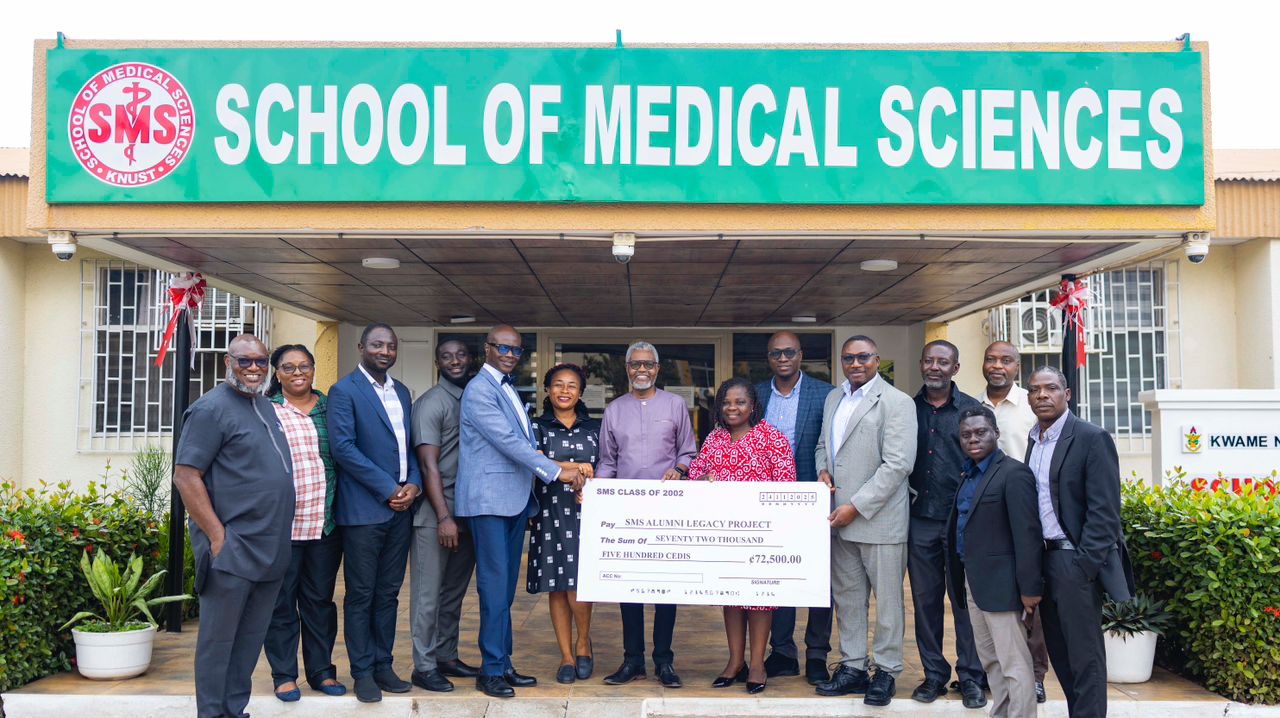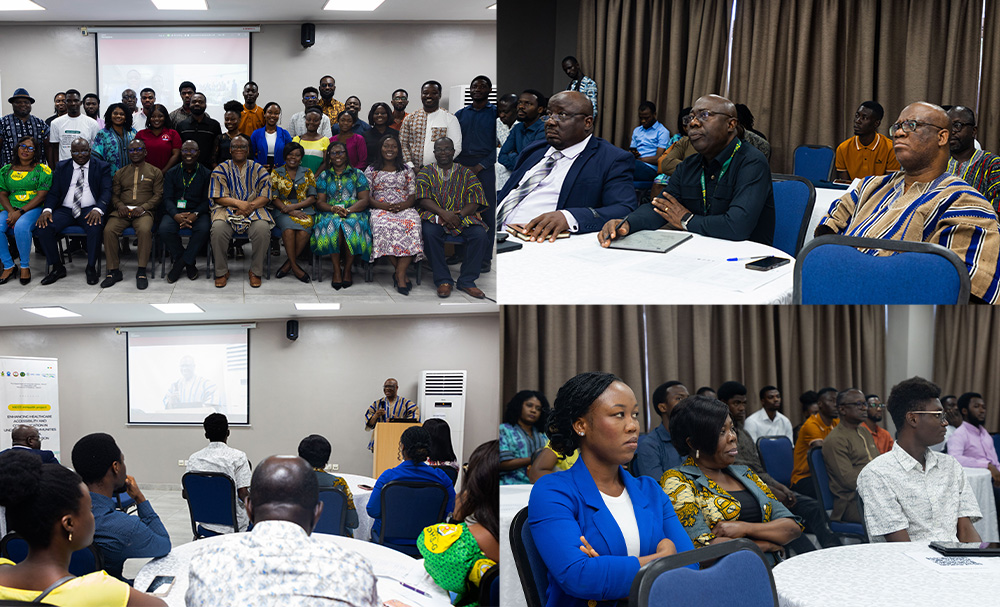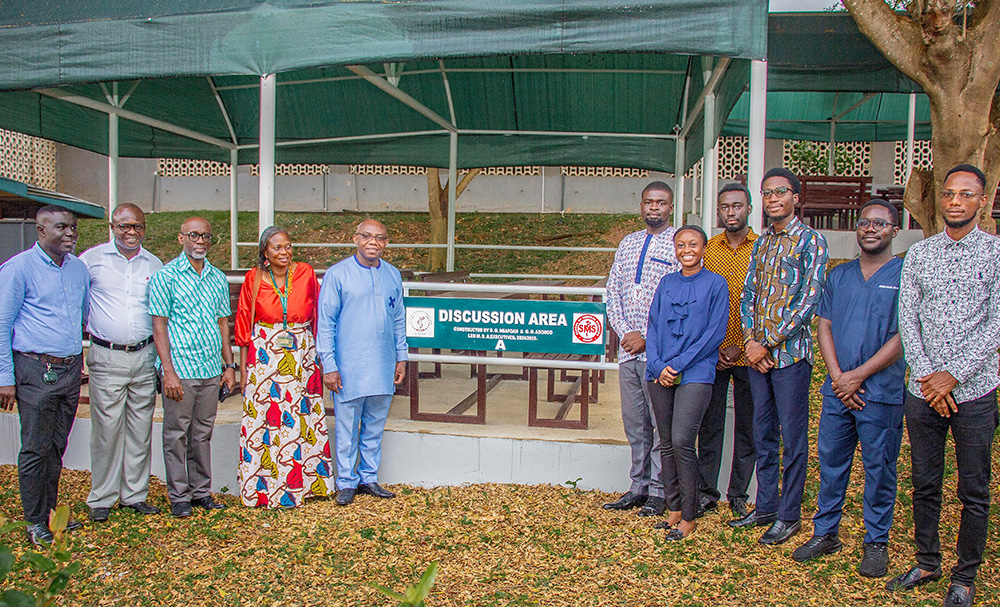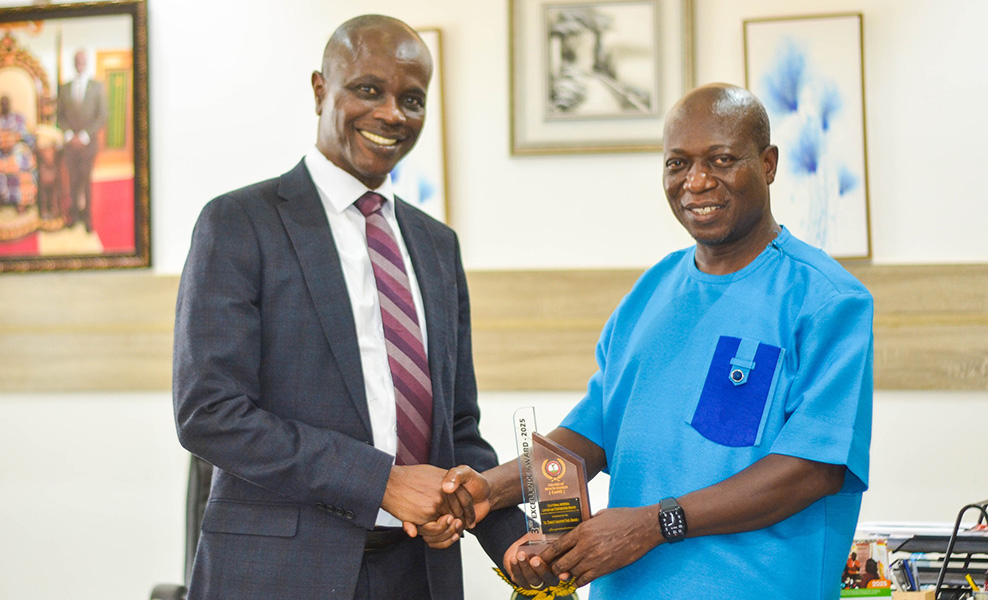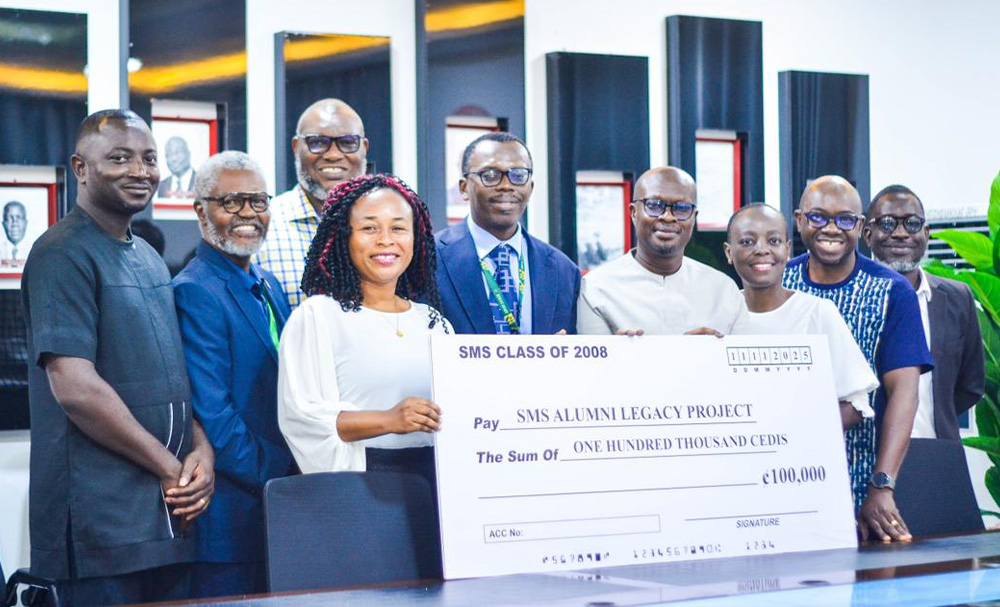Two renowned scientists from the College of Health Sciences of the Kwame Nkrumah University of Science and Technology (KNUST), Kumasi, presented their research work during the just-ended UN General Assembly Science Summit (SSUNGA) in New York on Thursday 19th September 2024.
The first scientist, Professor Alexander Yaw Debrah, Dean of the Faculty of Allied Health Sciences at the College of Health Sciences, KNUST, delivered a presentation titled "How North-South Research Collaboration Contributes to the Achievement of SDG Target 3: Ensure Healthy Lives and Promote Well-Being for All at All Ages." His presentation focused on improving the identification and management of lymphatic filariasis (LF) cases in Ghana, particularly elephantiasis and hydrocele, through innovative mobile reporting systems used by Community Health Volunteers (CHVs). He revealed how KNUST and Bonn University Hospital collaborated to develop a voice messaging mobile phone system to identify more elephantiasis patients than the traditional paper-based method currently being used by Ghana Health Service.

Professor Debrah's research highlighted how digital solutions have significantly enhanced the reporting accuracy of neglected tropical diseases (NTDs), advancing the World Health Organisation's NTD Agenda 2030 and the Sustainable Development Goal (SDG) 3: Health for all.
Dr. (Mrs.) Linda Batsa Debrah, a Senior Lecturer at the Department of Clinical Microbiology and also at the College of Health Sciences, KNUST, was the second scientist. She was the convener and the moderator of the session titled “The Future of Researcher's Global Health Career in Africa: Challenges and Opportunities.”
She spoke on “Resource-limited Setting: Challenges in Conducting Clinical Research.” Her talk addressed the pressing challenges early-career researchers face in low-and middle-income countries, particularly within resource-limited settings. She shared insights into the obstacles related to funding, infrastructure, and skill acquisition and strategies for overcoming these challenges to foster scientific innovation across Africa.

The Science Summit during the United Nations General Assembly (SSUNGA) is a premier global event that unites leading scientists, policymakers, and innovators to address pressing scientific and technological challenges. The Summit is a platform to showcase cutting-edge research, promote international collaboration, and advance discussions on critical global issues aligned with the United Nations Sustainable Development Goals (SDGs). This year, the Summit focused on a wide range of topics, including climate action, One Health, artificial intelligence, biodiversity, and clean energy. A special emphasis was placed on the Africa Science Leadership Coalition, which aims to promote African leadership in science policy decision-making.
Both scientists thanked the German Federal Ministry of Education and Research (BMBF) for the funding opportunity since 2017 which is helping to eliminate lymphatic filariasis in Ghana.




